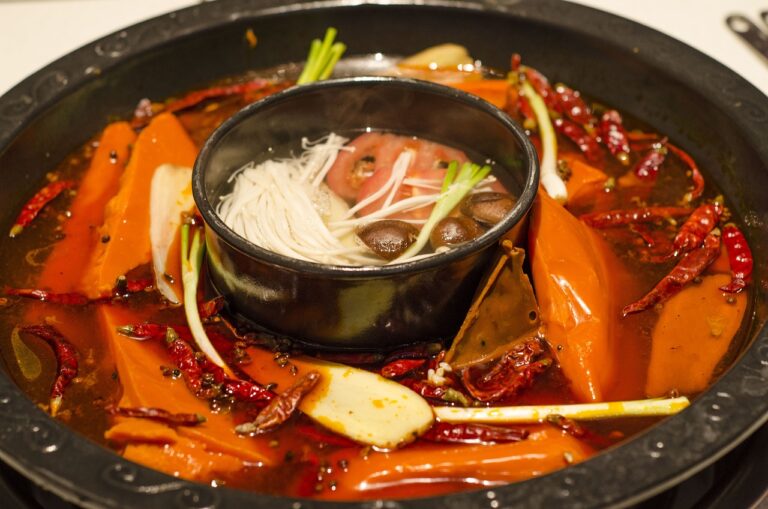The Role of Food Ethics in Meal Kit Ingredient Sourcing: Cricbet99.win register, Sky 99 exch, Reddy book club
cricbet99.win register, sky 99 exch, reddy book club: Meal kit services have become increasingly popular in recent years, offering convenience and variety to consumers looking to simplify their meal planning and cooking routines. However, as more and more people turn to meal kits for their dinner solutions, questions about the ethical implications of ingredient sourcing have come to the forefront.
Food ethics play a crucial role in the sourcing of ingredients for meal kits, as consumers become more conscious of where their food comes from and how it is produced. From the environmental impact of farming practices to the treatment of workers in the food supply chain, there are a number of factors that come into play when considering the ethics of ingredient sourcing for meal kits.
In this article, we will explore the role of food ethics in meal kit ingredient sourcing and discuss how consumers can make more informed choices when it comes to the foods they eat.
Sustainability in Ingredient Sourcing
One of the key aspects of food ethics in meal kit ingredient sourcing is sustainability. Sustainable sourcing practices ensure that ingredients are produced in a way that minimizes negative impacts on the environment, such as soil degradation, water pollution, and deforestation.
Many meal kit companies prioritize sustainability in their ingredient sourcing, partnering with local farmers and producers who use regenerative farming practices, organic methods, and ethical animal husbandry. By choosing meal kits that prioritize sustainability, consumers can feel good about the impact their food choices have on the planet.
Fair Wages and Working Conditions
Another important consideration in food ethics is the treatment of workers in the food supply chain. From farm workers to processing plant employees, many people are involved in the production and distribution of ingredients for meal kits. Ensuring fair wages, safe working conditions, and labor rights for these workers is essential for upholding ethical standards in the food industry.
Some meal kit companies go above and beyond to ensure fair treatment of their workers, conducting audits of suppliers and promoting transparency in their supply chain. By supporting companies that prioritize fair labor practices, consumers can help create a more just and equitable food system.
Animal Welfare
For consumers who eat meat, poultry, or seafood, animal welfare is an important aspect of food ethics to consider. Many people are concerned about the treatment of animals in the food industry and seek out products that come from farms and fisheries where animals are treated humanely and ethically.
Some meal kit companies source their animal products from producers who adhere to high animal welfare standards, such as free-range grazing, antibiotic-free practices, and humane slaughter methods. By choosing meal kits that prioritize animal welfare, consumers can support a more compassionate approach to food production.
Transparency and Traceability
In an age of increasing food safety concerns and scandals, transparency and traceability in the food supply chain are more important than ever. Consumers want to know where their food comes from, how it was produced, and who was involved in its journey from farm to table.
Meal kit companies that prioritize transparency and traceability provide detailed information about their ingredient sourcing practices, including the origins of each ingredient, farming methods used, and certifications obtained. By choosing meal kits that value transparency, consumers can feel confident in the quality and integrity of the foods they are eating.
Community Impact
Food ethics extend beyond environmental and social considerations to include the impact of ingredient sourcing on local communities. Supporting small-scale farmers, artisans, and producers can help strengthen local economies, preserve cultural traditions, and promote food diversity.
Some meal kit companies partner with local farmers and producers in communities across the country to source fresh, seasonal ingredients for their meal kits. By choosing meal kits that support local communities, consumers can contribute to a more resilient and sustainable food system.
Consumer Empowerment
Ultimately, the role of food ethics in meal kit ingredient sourcing comes down to consumer empowerment. By making informed choices about the foods they eat and the companies they support, consumers have the power to drive positive change in the food industry and support practices that align with their values.
FAQs
Q: Are meal kits more ethical than traditional grocery shopping?
A: Meal kits can be a more ethical option for some consumers, as they often prioritize sustainability, fair labor practices, and animal welfare in their ingredient sourcing. However, it ultimately depends on the specific meal kit company and their sourcing practices.
Q: How can I find out more about a meal kit company’s ingredient sourcing practices?
A: Many meal kit companies provide detailed information on their websites about their ingredient sourcing practices, including where they source their ingredients, how they support sustainability and fair labor practices, and any certifications they hold. Consumers can also reach out to companies directly for more information.
Q: Is it more expensive to choose ethical meal kits over conventional options?
A: While ethical meal kits may come at a slightly higher price point than conventional options, many consumers believe that the benefits in terms of quality, sustainability, and social impact are worth the extra cost. Additionally, some meal kit companies offer discounts and promotions to make ethical options more accessible.
In conclusion, the role of food ethics in meal kit ingredient sourcing is essential for creating a more sustainable, equitable, and transparent food system. By choosing meal kits that prioritize sustainability, fair labor practices, animal welfare, transparency, and community impact, consumers can make a positive impact on the food industry and support practices that align with their values. By empowering consumers to make informed choices about the foods they eat, meal kit companies can help drive positive change in the food industry and promote a more ethical approach to ingredient sourcing.







